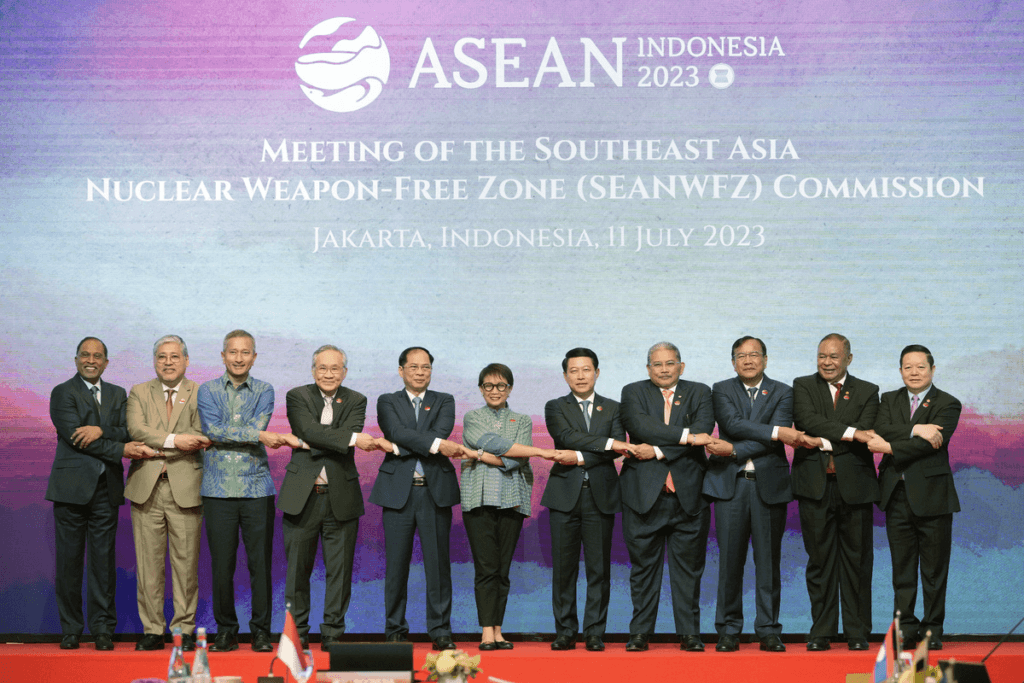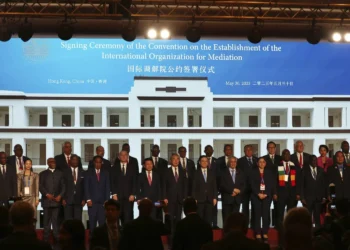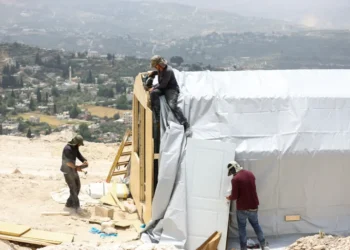Indonesian Foreign Affairs Minister, Retno Marsudi, has cautioned about the level of risk posed by the use of nuclear weapons.
Marsudi made these remarks during the opening of the Southeast Asia Nuclear Weapon-Free Zone Commission (SEANWFZ) meeting on Tuesday, July 11, 2023.
Marsudi disclosed that the world is currently witnessing a higher level of risk of nuclear weapons use than at any time in recent history.
She averred that all related parties must make all-out efforts to preserve the Southeast Asian Region as a nuclear-weapon-free zone. “We cannot be truly safe with nuclear weapons in our region,” Marsudi said.

“No weapon is more powerful and destructive than nuclear weapons. And with nuclear weapons, we are only one miscalculation away from apocalypse and global catastrophe.”
Retno Marsudi
Marsudi noted that the SEANWFZ had contributed to the collective efforts in maintaining the region’s peace and stability through global disarmament and non-proliferation regime.
However, the Indonesian Minister also expressed regret over the fact that none of the nuclear weapon states had signed the protocol to the SEANWFZ Treaty.
“The threat is imminent, so we can no longer play a waiting game,” Marsudi said.
Nevertheless, Marsudi affirmed that the ASEAN should keep forging ahead to achieve the goal, as she views the threat is becoming more imminent.
“We must come as a united front before the nuclear weapon states. (It is) only then we can forge a clearer path toward a region free of nuclear weapons,” she stressed.
In 1995, all members of ASEAN signed the SEANWFZ Treaty, also known as the Treaty of Bangkok.
The treaty obligates its signatory states not to “develop, manufacture or otherwise acquire, possess or have control over nuclear weapons, station or transport nuclear weapons, or test or use nuclear weapons.”
The protocol itself was formulated in a bid to invite the five nuclear powers; China, Russia, France, the United Kingdom, and the United States, to join the efforts to realize Southeast Asia as a region free of nuclear weapons.
Several nuclear weapon states have expressed objections to various points found in the treaty’s protocol. Meanwhile, China has expressed its readiness to sign the protocol despite no concrete actions seen so far.
At the 2022 ASEAN Summit, it was agreed that the nuclear powers could partly sign the treaty. This agreement is considered as a crucial foundation for resuming negotiations that have been halted for over a decade.
Myanmar’s Civil Strife, Tensions In The South China Sea To Be Discussed At ASEAN Summit
Indonesian Foreign Minister, Retno Marsudi’s comments came ahead of a two-day summit of the Association of Southeast Asian Nations (ASEAN) which commences later Tuesday in Jakarta.
The agenda will focus on Myanmar’s deadly civil strife, continuing tensions in the South China Sea and efforts to fortify regional economies amid the global headwinds set off by Russia’s invasion of Ukraine.
ASEAN members; Brunei, Malaysia, the Philippines and Vietnam have been entangled in long-simmering territorial conflicts with China and Taiwan for decades.
ASEAN and China have been negotiating a non-aggression pact that aims to prevent an escalation of the disputes, but the talks have faced years of delay.
Of the 10 ASEAN member countries, only Myanmar will not attend the meeting following the regional organization’s decision to exclude Myanmar’s political representatives from various high-level meetings, as Myanmar’s military junta has not implemented the ASEAN’s five-point consensus.
The five-point consensus is a decision agreed upon by ASEAN leaders and Myanmar’s junta leader General Min Aung Hlaing in April 2021 that aims to help resolve the political crisis of Myanmar.







